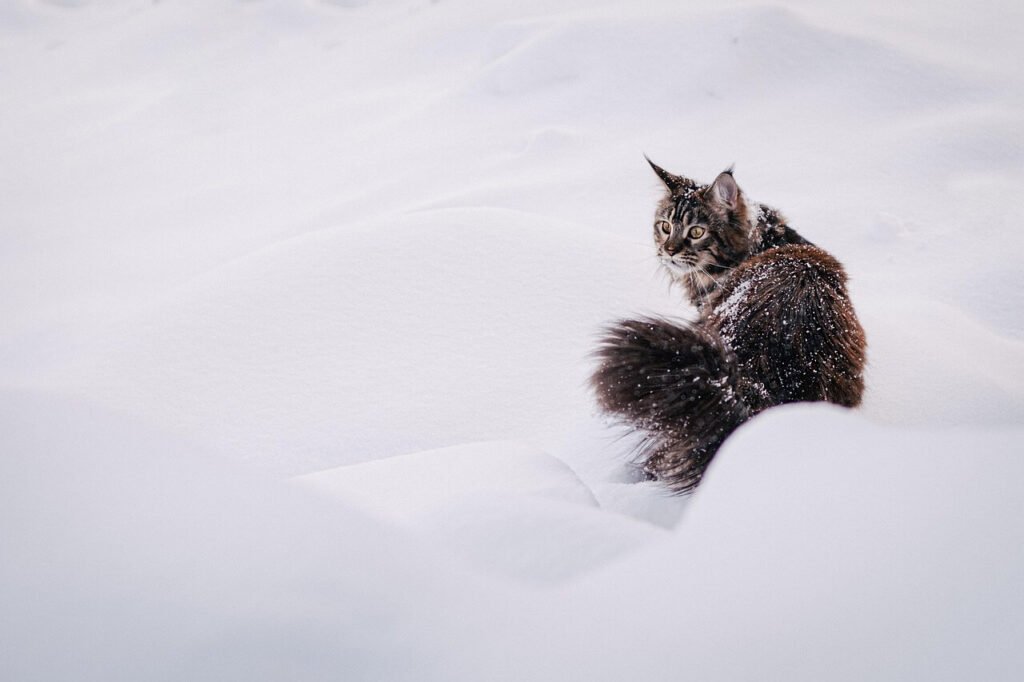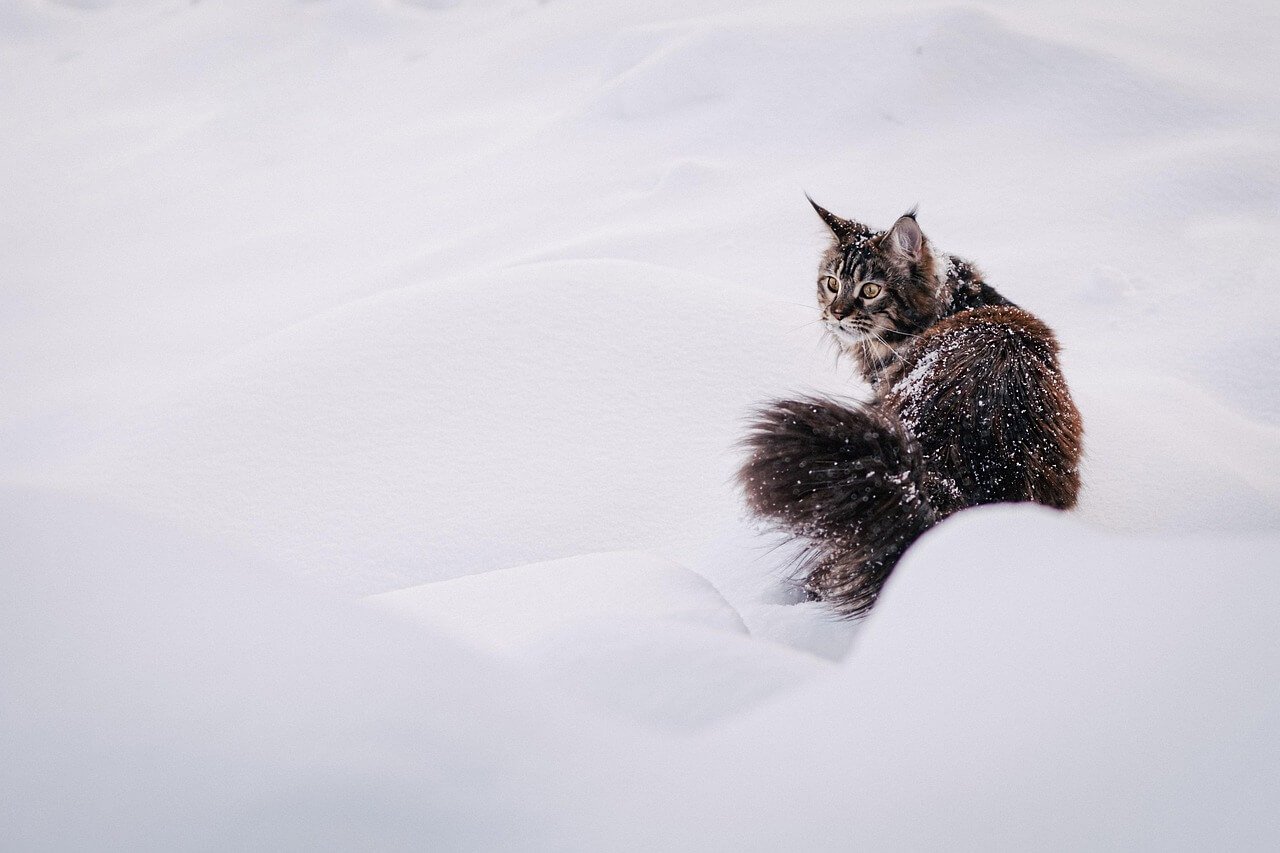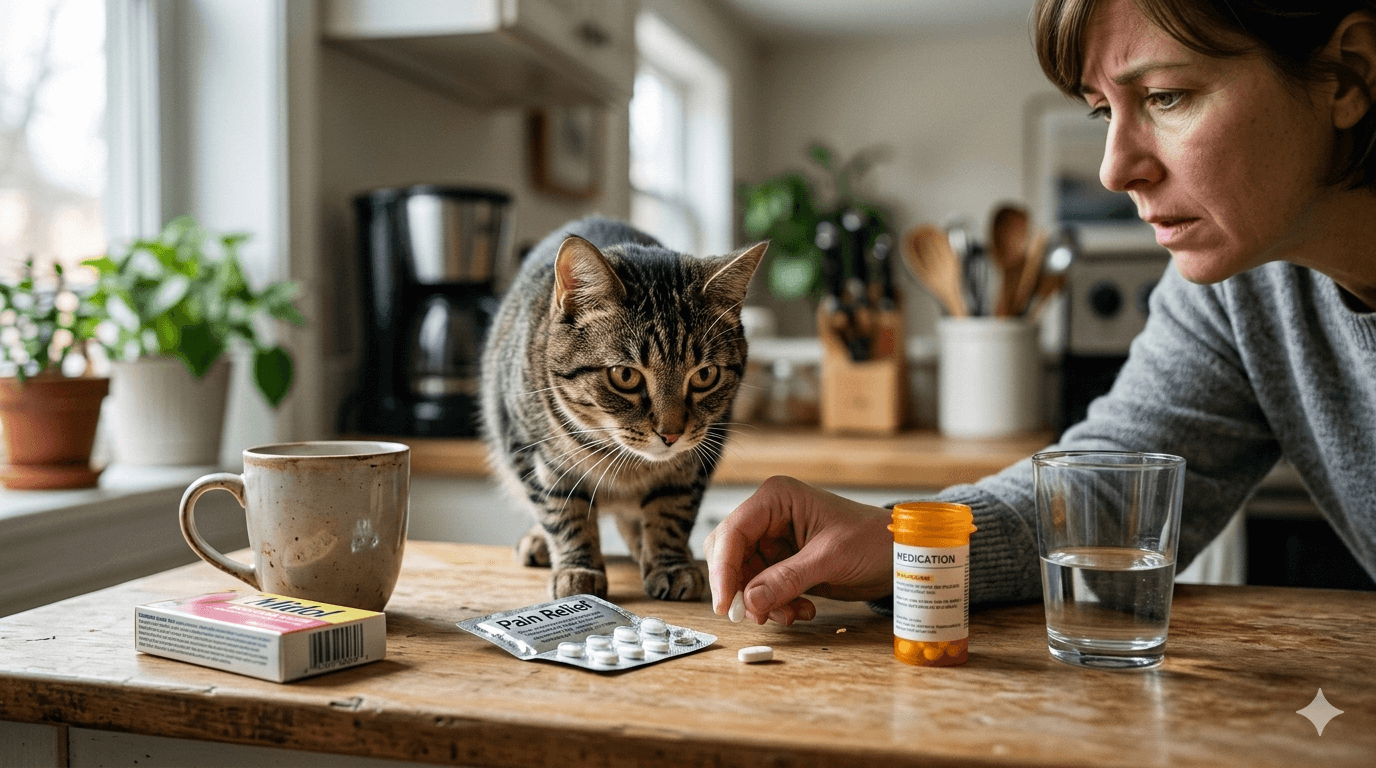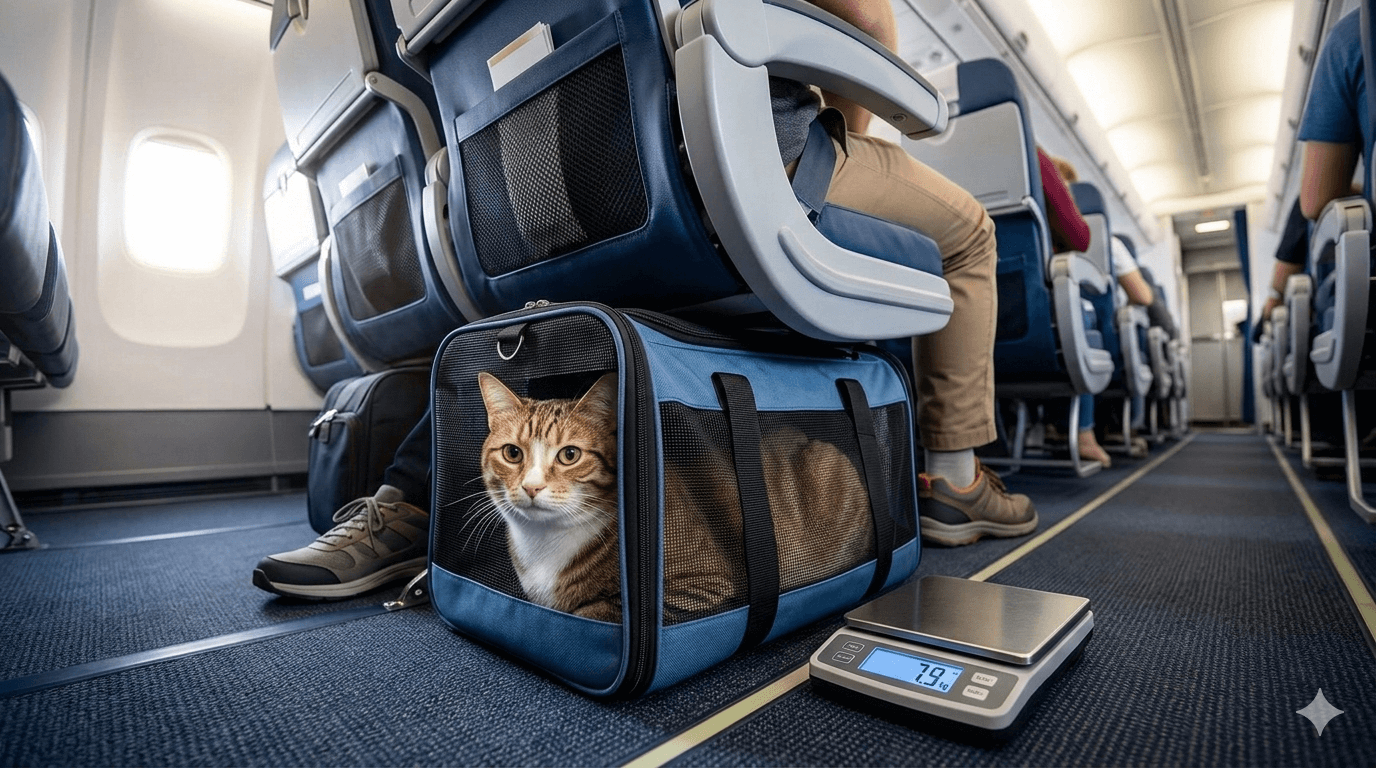Cat Drooling After Medicine: What You Need to Know
Administering medicine to your cat is rarely a walk in the park, but what happens when your feline friend starts drooling excessively afterward? While it may seem alarming, drooling after medicine isn’t always a cause for concern. However, understanding why it happens and how to respond can help you ensure your cat’s comfort and safety. In this blog post, we’ll explore the reasons behind cat drooling after medicine, whether it’s normal or a sign of something more serious, and what steps you can take to address it. Let’s dive into the details so you can feel confident and informed when caring for your furry companion.
Common Reasons for Cat Drooling After Medicine
Drooling after taking medicine can occur for several reasons, ranging from mild reactions to more serious concerns. Here are some of the most common explanations:
Bitter Taste
Many medications have a strong or unpleasant taste that can trigger excessive drooling as your cat tries to rid their mouth of the flavor.Nausea or Upset Stomach
Some medications may irritate your cat’s stomach, leading to nausea and drooling as a side effect.Allergic Reaction
In rare cases, drooling could indicate an allergic reaction to the medication itself.Difficulty Swallowing
If the pill is too large or uncomfortable, your cat might drool while attempting to swallow it.Stress or Anxiety
The process of being given medicine can be stressful, causing drooling as a physiological response.
While drooling is often harmless, it’s important to monitor your cat closely to rule out any serious underlying issues. If the drooling persists or is accompanied by other symptoms, consult your veterinarian promptly.
Signs That Drooling May Be a Cause for Concern
While occasional drooling after medicine is usually harmless, certain signs can indicate a more serious problem. Here’s what to watch for if your cat starts drooling excessively:
Excessive Saliva Production
If the drooling seems unusually heavy or persistent, it could signal irritation or toxicity.Vomiting or Diarrhea
Gastrointestinal upset alongside drooling may suggest the medication is causing digestive issues.Lethargy or Weakness
A sudden lack of energy or unresponsiveness could point to an adverse reaction to the medication.Swelling or Rash
Facial swelling or skin rashes may indicate an allergic reaction requiring immediate attention.Behavioral Changes
Unusual aggression, hiding, or vocalization may suggest discomfort or distress caused by the medicine.
Recognizing these warning signs early can help you act quickly and ensure your cat receives the care they need. Always err on the side of caution and consult your vet if you’re unsure.
Check this guide 👉Why Is My Cat Drooling When I Pet Him? Best 7 Expert Tips!
Check this guide 👉Why Does My Cat Drool When Happy? Best 7 Expert Tips!

Reasons for Drooling After Medicine | Signs It Could Be Serious |
|---|---|
Bitter taste of medication | Excessive saliva production |
Nausea or upset stomach | Vomiting or diarrhea |
Allergic reaction | Lethargy or weakness |
Difficulty swallowing | Swelling or rash |
Stress or anxiety | Behavioral changes |
Tips to Minimize Drooling After Medicine
You can take steps to reduce the likelihood of drooling and make the medication process smoother for your cat. Here are some practical tips:
Ask About Flavoring Options
Some veterinarians can compound medications into flavored liquids or treats to mask the bitter taste.Use a Pill Pocket
Wrapping the pill in a soft treat designed for this purpose can help your cat swallow it without noticing.Administer with Food
Crushing the pill (if safe) and mixing it with wet food can make it easier to consume.Stay Calm During Administration
Cats pick up on your energy, so staying calm can reduce their stress and minimize drooling.Offer Water Afterwards
Encourage your cat to drink water after taking the pill to wash away any lingering taste.
By implementing these strategies, you can help your cat tolerate their medication better and reduce unwanted drooling. Remember, patience and consistency are key.
Alternatives to Oral Medication for Cats
If your cat struggles with oral medications or experiences excessive drooling despite your best efforts, there may be alternative options available. Here are some alternatives to discuss with your vet:
Injectable Medications
Injections administered by your veterinarian can bypass the need for oral administration entirely.Transdermal Gels
Some medications can be formulated into gels applied directly to your cat’s ear or skin.Liquid Formulations
Liquid medications are often easier to administer than pills and can be mixed with food or water.Topical Treatments
For certain conditions, topical treatments like creams or sprays may be effective alternatives.Long-Lasting Treatments
Extended-release injections or implants can reduce the frequency of dosing, minimizing stress for both you and your cat.
Exploring these alternatives can make managing your cat’s health less stressful and more effective. Always consult your veterinarian before making any changes to your cat’s treatment plan.
Common Mistakes to Avoid When Giving Medicine
Administering medicine to your cat can be tricky, and certain mistakes can make the process more stressful for both you and your pet. Here are some common errors to avoid:
Skipping Doses
Missing doses can reduce the effectiveness of the treatment and prolong your cat’s recovery.Crushing Pills Without Consulting a Vet
Some medications may lose potency or become harmful if crushed improperly. Always check with your vet first.Forcing the Pill Too Aggressively
Forcing a pill into your cat’s mouth too roughly can cause injury or increase their resistance to future treatments.Not Rewarding After Administration
Failing to reward your cat afterward can make them associate medication time with negative experiences.Ignoring Signs of Adverse Reactions
Overlooking symptoms like excessive drooling, vomiting, or lethargy can delay necessary adjustments to the treatment plan.
Avoiding these mistakes ensures a smoother experience and better outcomes for your cat. Taking the time to do it right can make all the difference.
How to Make Medicine Time Less Stressful for Your Cat
Making medicine time as stress-free as possible is essential for your cat’s well-being and your own sanity. Here are some tips to create a positive experience:
Create a Calm Environment
Choose a quiet, familiar space where your cat feels safe and relaxed before administering the medicine.Use Positive Reinforcement
Reward your cat with treats, praise, or playtime immediately after giving the medication to build a positive association.Practice Patience
Take your time and remain calm, even if your cat resists. Rushing can increase stress for both of you.Disguise the Medicine Effectively
Hide pills in soft treats or mix liquid medications with strong-smelling foods like tuna paste (if approved by your vet).Try Different Techniques
Experiment with methods like syringe feeding liquids or using pill dispensers to find what works best for your cat.
By focusing on reducing stress, you can make medicine time less daunting and more manageable for everyone involved. A little creativity goes a long way!
Signs That Your Cat May Need a Medication Adjustment
Sometimes, despite your best efforts, a medication may not suit your cat perfectly. Recognizing signs that an adjustment is needed can prevent complications. Here’s what to look for:
Persistent Drooling or Vomiting
If these symptoms continue beyond the initial dose, it could indicate intolerance to the medication.Lack of Improvement
If your cat’s condition doesn’t improve or worsens over time, the current dosage or type of medication might need reevaluation.Changes in Appetite
Refusal to eat or sudden binge eating can signal discomfort caused by the medication.Increased Irritability or Aggression
Behavioral changes may suggest that the medication is causing physical or emotional distress.Unusual Lethargy
Excessive sleepiness or disinterest in activities could mean the medication isn’t agreeing with your cat.
If you notice any of these signs, contact your veterinarian promptly to discuss potential adjustments. Ensuring the right medication and dosage is crucial for your cat’s health and happiness.
Frequently Asked Questions About Cat Drooling After Medicine
Is it normal for cats to drool after taking medicine?
Mild drooling is common due to the bitter taste of many medications, but excessive drooling should be monitored.
Can drooling indicate an allergic reaction?
Yes, drooling can sometimes be a sign of an allergic reaction, especially if accompanied by other symptoms like swelling or lethargy.
How can I make giving my cat medicine easier?
Try using pill pockets, flavored liquids, or administering the medication with food to make the process smoother.
What should I do if my cat drools excessively after medicine?
Contact your veterinarian immediately to rule out toxicity, allergic reactions, or other serious issues.
Are there alternatives to oral medications for cats?
Yes, injectables, transdermal gels, and liquid formulations are potential alternatives depending on the medication and condition.
Supporting Your Cat Through Medication Challenges
Managing your cat’s health can be challenging, especially when it comes to administering medicine. Drooling after medicine is a common issue, but understanding its causes and how to address them can make a world of difference. By staying vigilant, exploring alternatives, and working closely with your veterinarian, you can ensure your cat receives the care they need while minimizing discomfort. Remember, every small effort you make contributes to your cat’s well-being. With love, patience, and the right approach, you can navigate this journey together and keep your feline friend happy and healthy.
Can I Give My Cat Midol? Best 7 Expert Tips! – Learn the risks, symptoms, and safe alternatives to keep your cat healthy and avoid toxic reactions.
Can I Give My Dog Midol? Best 7 Expert Tips! – Discover the risks, safe alternatives, and expert advice to keep your dog safe from accidental poisoning.
Maximum Weight for Cats on Planes: Best 7 Expert Tips! – Learn airline policies, tips to stay compliant, and ensure safe travels for your feline friend.
Max Weight for Dogs on Planes: Best 7 Expert Tips! – Discover airline weight limits, safe travel tips, and solutions for flying with your dog stress-free.





